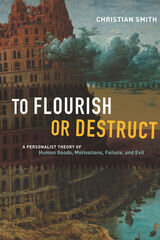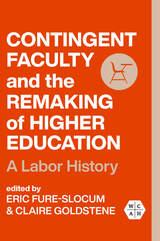
Bioethics and the Human Goods offers students and general readers a brief introduction to bioethics from a “natural law” philosophical perspective. This perspective, which traces its origins to classical antiquity, has profoundly shaped Western ethics and law and is enjoying an exciting renaissance. While compatible with much in the ethical thought of the great religions, it is grounded in reason, not religion. In contrast to the currently dominant bioethical theories of utilitarianism and principlism, the natural law approach offers an understanding of human flourishing grounded in basic human goods, including life, health, friendship, and knowledge, and in the wrongness of intentionally turning against, or neglecting, these goods.
The book is divided into two sections: Foundations and Issues. Foundations sketches a natural law understanding of the important ethical principles of autonomy, non-maleficence, beneficence, and justice and explores different understandings of “personhood” and whether human embryos are persons. Issues applies a natural law perspective to some of the most controversial debates in contemporary bioethics at the beginning and end of life: research on human embryos, abortion, infanticide, euthanasia, the withdrawal of tube-feeding from patients in a “persistent vegetative state,” and the definition of death. The text is completed by appendices featuring personal statements by Alfonso Gómez-Lobo on the status of the human embryo and on the definition and determination of death.

A concise and accessible introduction to natural law ethics, this book introduces readers to the mainstream tradition of Western moral philosophy. Building on philosophers from Plato through Aquinas to John Finnis, Alfonso Gómez-Lobo links morality to the protection of basic human goods — life, family, friendship, work and play, the experience of beauty, knowledge, and integrity — elements essential to a flourishing, happy human life.
Gómez-Lobo begins with a discussion of Plato's Crito as an introduction to the practice of moral philosophy, showing that it requires that its participants treat each other as equals and offer rational arguments to persuade each other. He then puts forth a general principle for practical rationality: one should pursue what is good and avoid what is bad. The human goods form the basis for moral norms that provide a standard by which actions can be evaluated: do they support or harm the human goods? He argues that moral norms should be understood as a system of rules whose rationale is the protection and enhancement of human goods. A moral norm that does not enjoin the preservation or enhancement of a specific good is unjustifiable. Shifting to a case study approach, Gómez-Lobo applies these principles to a discussion of abortion and euthanasia. The book ends with a brief treatment of rival positions, including utilitarianism and libertarianism, and of conscience as our ultimate moral guide.
Written as an introductory text for students of ethics and natural law, Morality and the Human Goods makes arguments consistent with Catholic teaching but is not based on theological considerations. The work falls squarely within the field of philosophical ethics and will be of interest to readers of any background.

In his 2010 book What Is a Person?, Christian Smith argued that sociology had for too long neglected this fundamental question. Prevailing social theories, he wrote, do not adequately “capture our deep subjective experience as persons, crucial dimensions of the richness of our own lived lives, what thinkers in previous ages might have called our ‘souls’ or ‘hearts.’” Building on Smith’s previous work, To Flourish or Destruct examines the motivations intrinsic to this subjective experience: Why do people do what they do? How can we explain the activity that gives rise to all human social life and social structures?
Smith argues that our actions stem from a motivation to realize what he calls natural human goods: ends that are, by nature, constitutionally good for all human beings. He goes on to explore the ways we can and do fail to realize these ends—a failure that can result in varying gradations of evil. Rooted in critical realism and informed by work in philosophy, psychology, and other fields, Smith’s ambitious book situates the idea of personhood at the center of our attempts to understand how we might shape good human lives and societies.
READERS
Browse our collection.
PUBLISHERS
See BiblioVault's publisher services.
STUDENT SERVICES
Files for college accessibility offices.
UChicago Accessibility Resources
home | accessibility | search | about | contact us
BiblioVault ® 2001 - 2024
The University of Chicago Press









